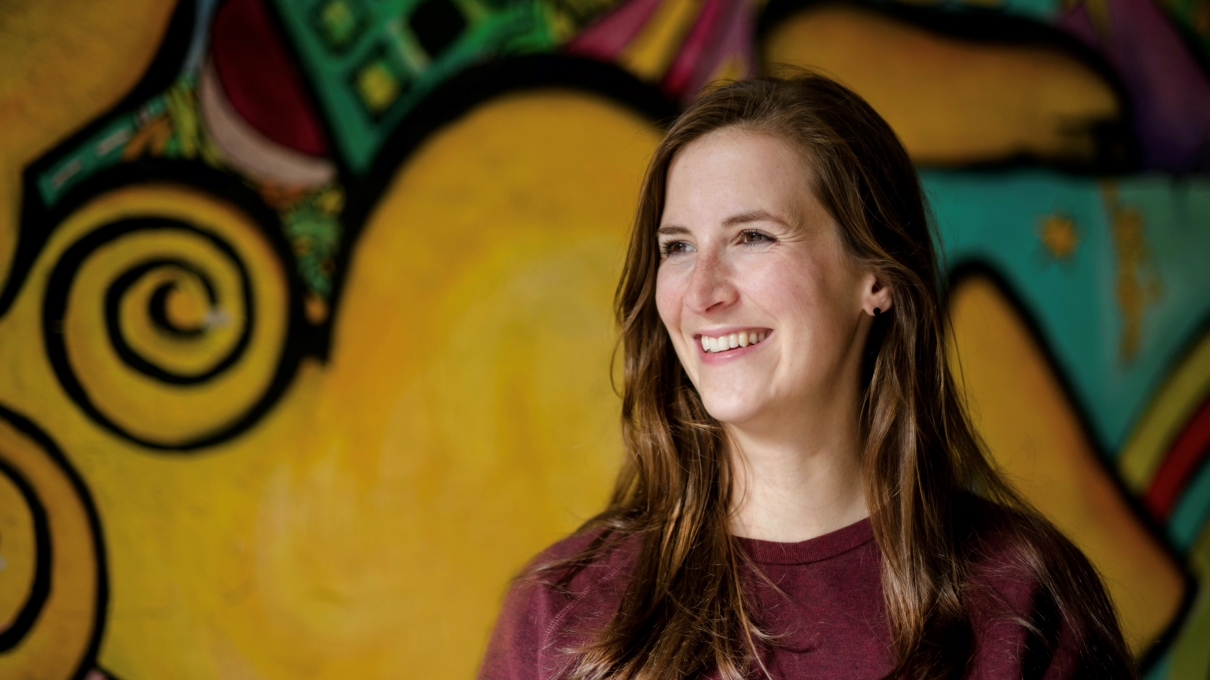Fiona Fritz is a historian and program manager for eCommemoration in the History and Politics Department of the Körber-Stiftung. Since 2018 she has been designing and coordinating international history policy projects and digital formats for young Europeans at the Körber-Stiftung. We spoke with her about the challenges of digitization and the XR History Award.
VRHAM!: Dear Fiona, the Körber-Stiftung is committed to international understanding and a vibrant civil society. What role does the keyword “digitalization” play in this context?
FIONA FRITZ: As the Körber-Stiftung, our mission statement is “Making society better. This also applies to digitization, which is already permeating and changing almost all areas of society. Many of the Körber-Stiftung’s programs therefore deal specifically with the effects of digitization on civil society, for example with hate speech on the net against local politicians, but also with strengthening the digital skills of children and young people.
In our area of history and politics, we are primarily concerned with the aspect of international understanding, which is made easier by global networking. In the digital realm, national borders no longer play a role in direct exchange, while national echo chambers remain stable in the discussion of history. At the same time, conspiracy myths and historical distortion are spreading faster than ever. This is precisely where we come in with our programs in the field of history and politics.
You are the program manager of the Körber-Stiftung’s eCommemmoration project – what is the goal of your work?
Our program eCommemoration is about history and memory in digital formats, in games, social media and extended reality. New technologies and new generations raise new questions about history. How can we use digital opportunities to create a multi-voiced and relevant memory practice? With eCommemoration, we connect actors across borders and disciplines who are engaged with history. With our eCommemoration Convention, we bring together historians, museum makers, developers, and creatives from around the world to explore, discuss, and create history and memory in games, social media, and extended reality.
We also produce our History & Politics podcast, in which we talk with guests from a variety of backgrounds about why history is always the present, and how looking back helps us to understand it better.
What challenges do you face in your work to think history and memory digitally?
Just in the last few months, with the Russian war against Ukraine, we have had to learn quite massively that history is an extremely powerful tool that is too often manipulated. That’s exactly why we initiated the XR History Award together with VRHAM!. We want to promote creative projects that use exciting virtual, augmented or mixed reality technologies to broaden our view of history and thus create new approaches. That’s why it’s important to us that with the XR History Award we can honor a project that tells fact-based stories about the past in new formats.
In our work, it is particularly important to us to bring together people from the most diverse backgrounds and countries. This is the only way we can break down prejudices against “dry history” or new digital formats. History takes place in the digital realm, whether we as a society like it or not. That’s why it’s important to us to take games and extended reality seriously as cultural assets, but at the same time to question them critically. And above all, not just to talk about the formats, but to actually try them out: Gaming and immersion, and really experiencing what the potentials, but also the limits, are in the digital.
As part of the exhibition “ULTRAmarin – An immersive Exhibition”, VRHAM! in cooperation with the Körber-Stiftung is presenting the XR History Award – more than 80 works were submitted, which you evaluated as part of the jury. What was particularly important to you in selecting the winner?
We had a really great international and interdisciplinary jury that brought together expertise from the VR field, media science, but also history. As a historian, it was particularly important to me that it was not a purely fictional story, but that it was based on real and comprehensible sources or eyewitness accounts and did not falsify history.
It was equally important to us that the project find a creative approach and show new perspectives through an artistic view. I was really excited by the submissions, because they show how vivid history and memory are in the field of extended reality. The project that we are now honoring with the XR History Award is, in my view, special in terms of the concrete stories that are told. At the same time, it serves as a model of what engagement with, or even reconciliation with, contested history can look like.
In the VR film Child of Empire, two contemporary witnesses from India and Pakistan tell their stories of escape after the violent partition in 1947. The narratives of the two protagonists are not dominated by the hatred that still too often defines the relationship between India and Pakistan today. Thus, Child of Empire overcomes the tendency to create a hierarchy of victims by placing the two narrated stories on equal footing.
 Xenia Bluhm
Xenia Bluhm